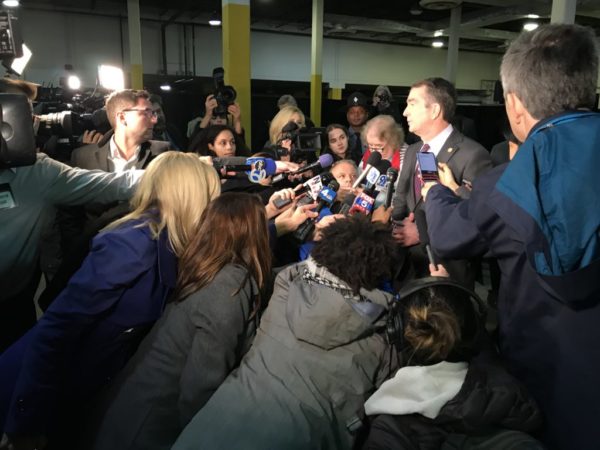
Proposed legislation from Del. Alfonso Lopez that would support local journalism has withered away without bipartisan support.
HB 1217 would have provided up to $5 million annually in income tax credits to eligible news outlets that employ local journalists and up to $10 million annually in income tax credits to businesses that advertise with these outlets.
The newspaper industry has seen a slow decline over the last two decades — as documented on CBS’s 60 Minutes this past Sunday.
The decay of local newspapers is driven in large part by a loss in advertising revenue as classifieds have moved to services like Craigslist and other ads have migrated online to Facebook, Google and other large platforms. In recent years, hedge funds and private equity firms have further squeezed local news by acquiring hundreds of newspapers and slashing costs — which has boosted profitability but led to additional layoffs.
In the past year, however, there’s been a push to enact federal policy to stop this trend, and the activity at the federal level has sparked state-level bills.
Lopez’s bill died this legislative session during a finance subcommittee meeting, with six Republicans voting against it and three Democrats voting for it. While the Arlington Democrat said the objections didn’t seem related to spending, he didn’t offer further theories about why it failed.
Lopez said he intends to keep applying pressure until this measure is adopted.
“I think we need local journalists to keep our constituents informed of what’s happening at the local level,” he tells ARLnow. “I’m going to bring this bill back every year until it becomes a law in the Commonwealth.”
The bill makes business sense because it would encourage ad revenue, which pays the salaries of local journalists, according to Lopez. It’s also good for democracy, he said, as areas without local coverage tend to have more government and small business corruption and see lower local election turnout.
Virginia Press Association Executive Director Betsy Edwards says it’s unfortunate the bill was killed.
“VPA supported this bill because it would have helped local newspapers through income tax credits,” she said. “While we did not work with Delegate Lopez in drafting this bill — we support what he was trying to do to help local news.”
Lopez modeled his bill on the federal Local Journalism Sustainability Act (LJSA), included in President Joe Biden’s Build Back Better Act, which effectively died when Sen. Joe Manchin (D-W.Va.) withdrew his support.
The LJSA was the fruit of advocacy by the Rebuild Local News coalition, coordinated by Steve Waldman, the founder of Report for America, a nonprofit that places journalists in local newsrooms.
“It became clear to me that, in addition to improved business models and greater philanthropy, the crisis is so severe, and the threat to democracy so urgent, that we needed better public policy,” he tells ARLnow.
The failure of the Local Journalism Sustainability Act prompted a slew of state legislators to put forward state versions, the success of which will hinge on bipartisan support and enthusiasm beyond journalism groups, he said.
“This has to be a cause that people who aren’t journalists care about,” he said. “It can’t be viewed as just a ‘journalism jobs’ bill or a bailout for the media.”
A selling point for the bill is that it uses tax credits to encourage ads and subscriptions, he said.
“This mechanism… [helps] local news in a way that preserves editorial independence and empowers local businesses,” Waldman said. “It’s more First Amendment-friendly and it’s more bipartisan.”
Waldman, a former journalist himself, studied the decline in news coverage and briefed the Federal Communications Commission on it 11 years ago.
While new media forms — including online-only and nonprofit outlets — have risen from the ashes of defunct papers, they’re not ubiquitous enough to counteract the decline triggered by ad revenue losses and exacerbated by hedge fund acquisitions, according to Waldman.
“That’s where we are now,” he said. “A broken business model leaves communities not being covered well enough.”
There is one bright spot for newspapers from this year’s legislative session in Richmond: they still benefit exclusively from state legal notice laws that require ads in a print newspaper of general circulation.

